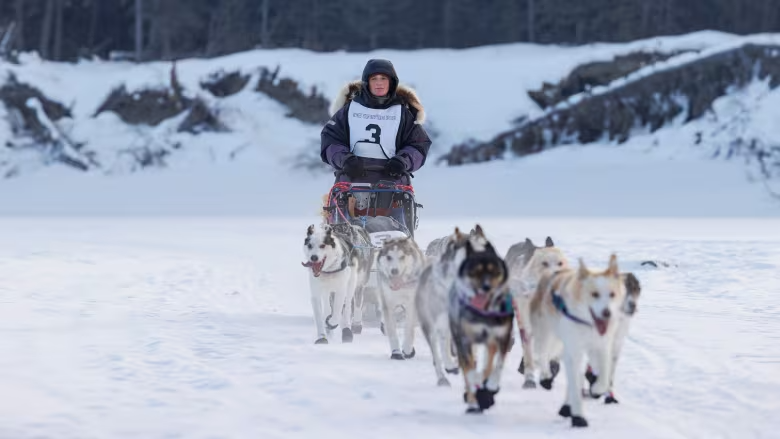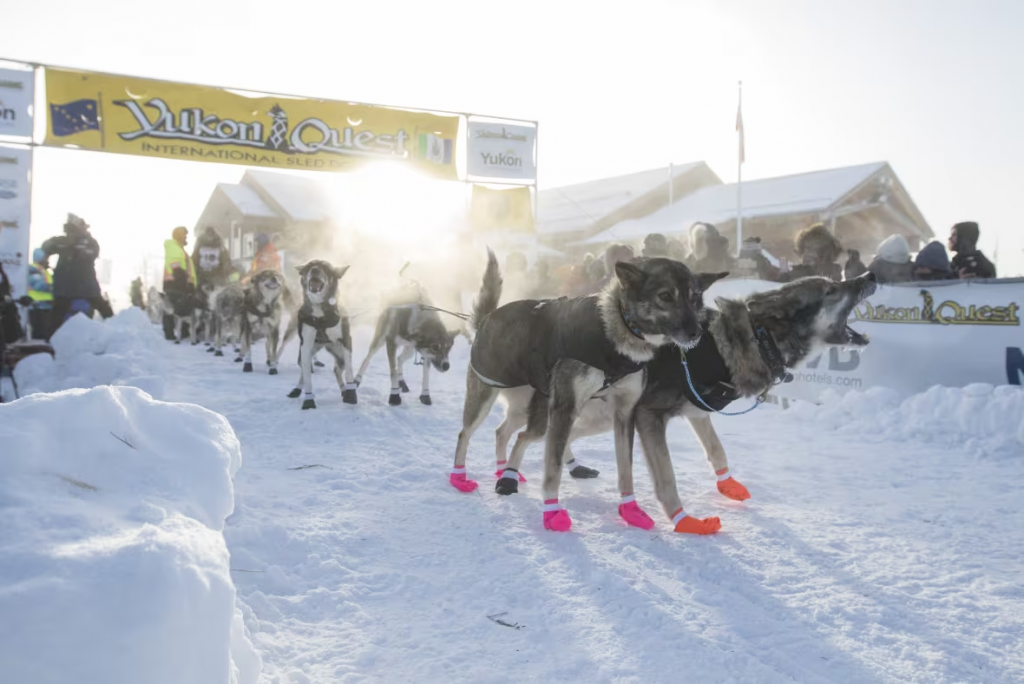Canada News
Yukon Quest to follow new route this winter because of climate change

Yukon musher Michelle Phillips leaves Whitehorse at the start of the 2023 Yukon Quest dog sled race on Feb. 11, 2023. This winter, the race will start and end in Teslin, following a route through Johnsons Crossing, Ross River, Faro, and back again. (Evan Mitsui/CBC)
By RCI, CBC News
Race in February will start and end in Teslin via Ross River and Faro
The Yukon Quest sled dog race will follow an entirely new route this winter and organizers say they really have little choice, thanks to climate change.
“We’ve dealt with open water for the past three years, especially,” said Ann Tayler, president of the Yukon Quest board.
“I know that people saw it last year with the open water around Shipyards Park and coming out of Whitehorse, and there was a lot of open water all the way to the Dawson Trail.”
For decades, the annual long-distance race was an international event with mushers racing through the remote backcountry between Whitehorse and Fairbanks, Alaska. A few years ago, however, the race was split into two separate events on either side of the border. In Yukon, that’s meant a much shorter race between Whitehorse and Dawson City.
And last year, the Yukon event was cut shorter still as organizers were first forced to make a last-minute change to the start location because of poor trail conditions near Whitehorse, and then also end the race early — in Pelly Crossing instead of Dawson City — because of a long stretch of open water at McCabe Creek.
It simply makes sense to run the event elsewhere this year, Tayler said, because of “Mother Nature, and climate change.”
“So it’s a lot of awareness of how that’s changing and what we have to do to stay safe … it’s pretty striking, and very much present in our thoughts,” she said.

The race this winter will now begin in Teslin, and mushers will travel along Teslin Lake to Johnsons Crossing. From there, they’ll go along the South Canol Road to Ross River, and then along the Dena Cho Trail to Faro before turning back toward Ross River and ending back in Teslin.
That’s about 684 kilometres, organizers say.
A shorter 280-kilometre version of the race will also start in Teslin and end just outside of Ross River.
Tayler said they just didn’t have time to figure out a route that would carry on from Faro all the way to Dawson City, but she’s expecting that will happen for the 2026 race.
“I don’t think people realize how much goes on, to actually scout and check for hazards and do risk assessments along the route, and actually negotiate with people to make sure that you’re not infringing on any land issues, and that you’re going to have a respectful trail through traditional territory of First Nations,” Tayler said.
“It simply takes time, and lots of discussions.”
The 2025 race begins in Teslin on Feb. 2, and there will be a ceremonial start in Whitehorse a day earlier, on Feb. 1. Tayler said the Whitehorse event will be for people who want to see the mushers and their dog teams but can’t make the trip to Teslin, a two-hour drive away.
“Whitehorse has been involved with the Quest forever, as the start line. So we wanted to really try and honour that past, if we can,” she said.
With files from Leonard Linklater





















